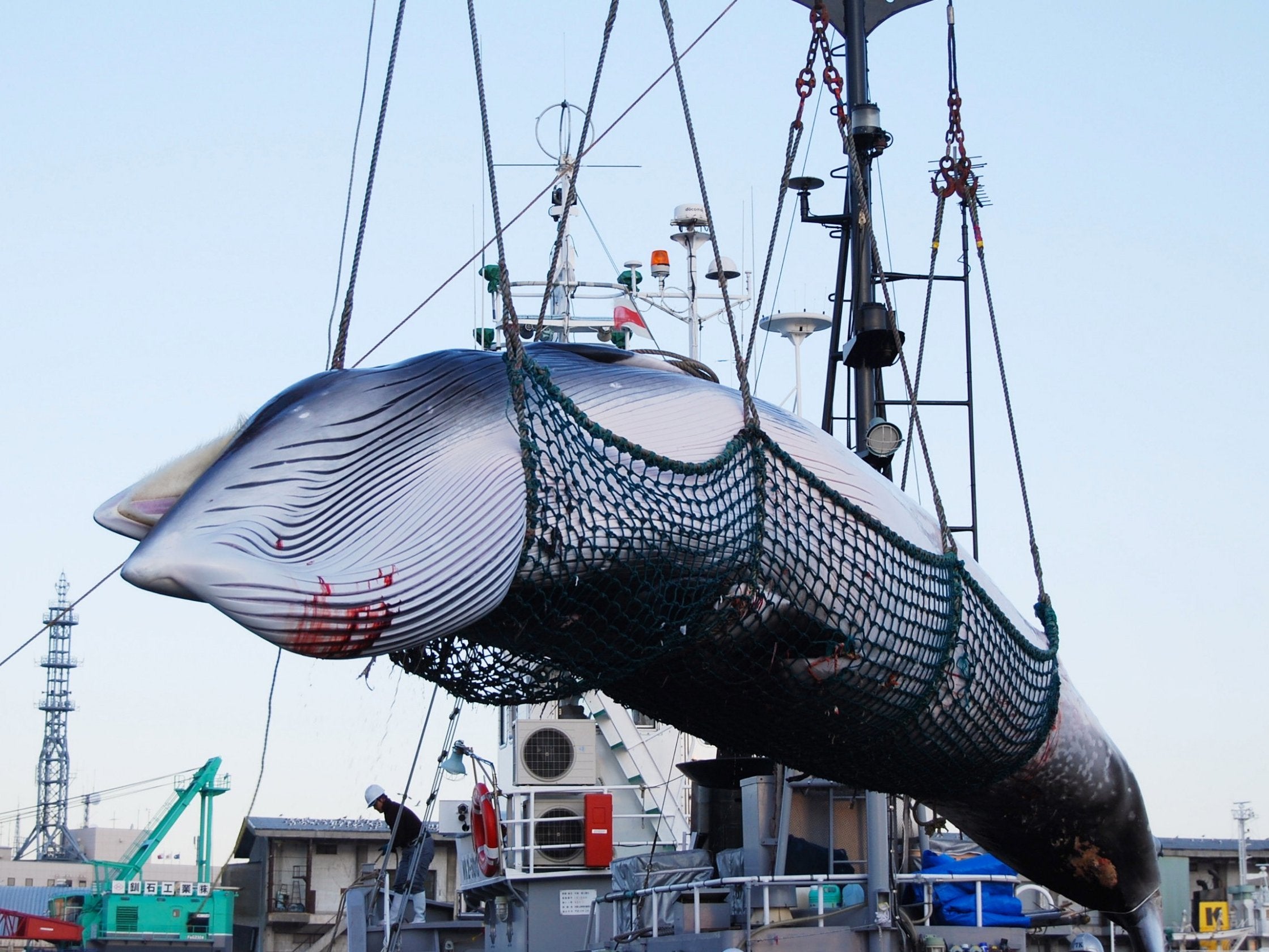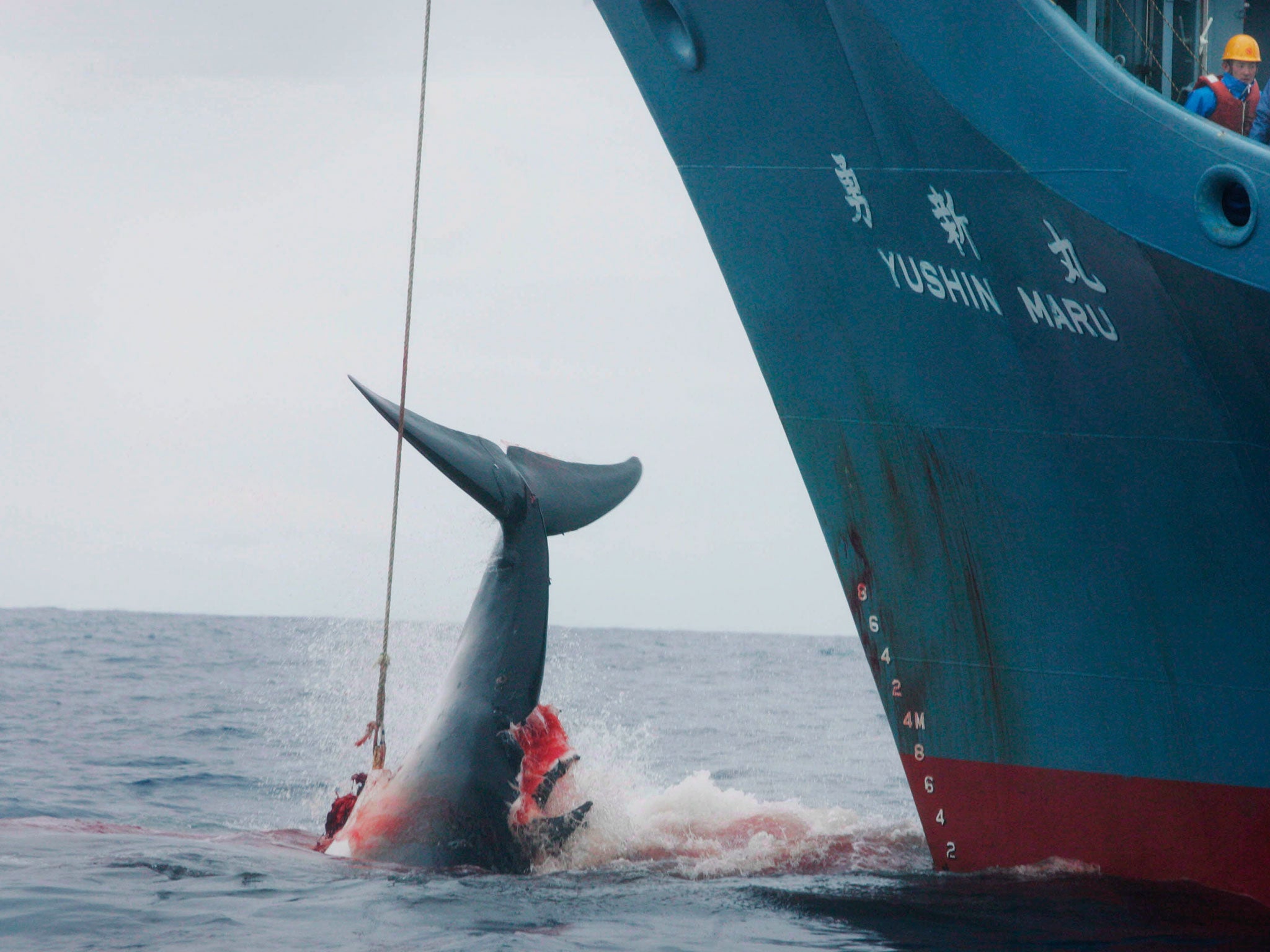Japan to resume commercial whaling a day after leaving conservation body
Politicians, celebrities and environmentalists express their 'utter disgust' with the move

Japan will begin commercial whaling the day after it leaves the international body which has banned the practice for 33 years.
Having quit the International Whaling Commission (IWC) last month, the first fleets will depart on 1 July, the day after its membership ends.
A ship owned by a group of fisheries in Taiji – a town infamous for its tradition of controversial dolphin and whale hunts – along with four others will hunt minke whales off Japan’s north-eastern coast.
Unlike before the 1986 moratorium was imposed, there are no plans for Japanese fleets to go beyond coastal expeditions and hunt across international waters.
Quoting sources in the fisheries association, the Kyodo news agency repored that the whaling fleet would spend weeks hunting minke whales, Baird’s beaked whales and black whales until late August.
The chief cabinet secretary Yoshihide Suga said Japan would pull out of the IWC because “it is impossible in the IWC to seek the coexistence of states with different views”.
Commercial whaling would only be permitted if it was “in line with Japan’s basic policy of promoting sustainable use of aquatic living resources based on scientific evidence,” he added.
Many whale populations which were facing extinction when the moratorium began have significantly recovered in the decades since.
Minke whales are listed as “least concern” by the International Union for Conservation of Nature. Nevertheless, Japan’s decision to quit the IWC and resume whaling provoked a storm of protest.
“Australia remains resolutely opposed to all forms of commercial and so-called ‘scientific’ whaling,” the country’s environment minister, Melissa Price, and foreign minister, Marise Payne, said in a statement.
Sam Annesley, executive director at Greenpeace Japan, added: “The government of Japan must urgently act to conserve marine ecosystems, rather than resume commercial whaling. The declaration today is out of step with the international community, let alone the protection needed to safeguard the future of our oceans and these majestic creatures.”
A number of celebrities and environmentalists including Ricky Gervais, Joanna Lumley, Chris Packham, Stephen Fry and Ben Fogle have signed an open letter to the Japanese prime minister, Shinzo Abe, attacking the decision to begin whaling again.
“To the utter disgust of the rest of the world, Japan intends to resume killing whales,” it said. “We don’t need statements of disgust, we need sanctions that will hurt. If shame won’t turn the Japanese then economic pain might.”

A march on the Japanese embassy in London has been planned for Saturday.
Japan argues the IWC has been taken over by conservationists opposed to any form of whale hunting and was no longer working to simply manage global whale stocks.
By resuming commercial whaling, the Pacific nation joins Iceland and Norway in ignoring the ban on whaling.

But some experts have suggested the decision may even benefit whale populations.
As well as resuming commercial whale hunts inside its waters, Japan announced it would cease its controversial scientific whale expeditions in Antarctica.
For years Japanese scientists caught thousands of whales a year, selling the meat after research had been completed. Critics claimed the scientific hunts were simply a cover to allow Japan to continue whaling for food.
Marine ecologists told Science magazine earlier this month that given the declining appetite for whalemeat in Japan, the commercial hunts in its coastal waters would probably be small in scale, whereas ending the yearly battles over Japan’s scientific expeditions would free up the IWC to focus on conservation.
Join our commenting forum
Join thought-provoking conversations, follow other Independent readers and see their replies
Comments
Bookmark popover
Removed from bookmarks